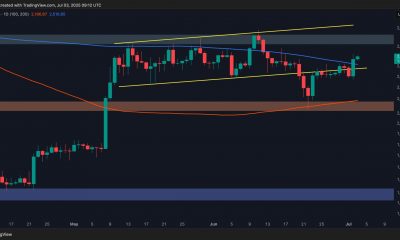Commodities
The week ends with oil prices up 7-8%. What is driving oil prices up today?

What is driving oil prices up today? Oil prices have rebounded after an initial decline during the day and are ending the week with a strong increase, Thanks to signals of increased demand in China.
March Brent crude futures on London’s ICE Futures exchange traded at $84.83 per barrel, up $0.8 (0.95%) from the close of the previous session.
The price of WTI futures for February crude oil grew by that time by $0.78 per barrel to $79.17 per barrel on NYMEX electronic trading.
Why are oil prices up today?
Oil prices may rise by 7-8% over a week. The PRC authorities have significantly increased oil import quotas for local companies, which indicates an expected increase in refinery output.
Investor optimism about the U.S. economic outlook provides additional support to the market, notes Bloomberg. Statistics data published the day before showed a slowdown in inflation in the U.S., which reinforced expectations of the imminent end of the cycle to increase the basic interest rate in the country.
Consumer prices (CPI) in the U.S. in December rose by 6.5% compared to the same month last year, said Thursday the Labor Department. Thus, inflation slowed from 7.1% in November, the lowest since October 2021. Consumer prices fell 0.1% from the previous month, the first month-on-month decline since 2020.
Earlier, we reported that ConocoPhillips is negotiating to import Venezuelan oil to the US.
Commodities
Oil prices rise; U.S. crude inventories plunge, Russia-Ukraine truce eyed
Commodities
India’s Reliance to stop buying Venezuelan oil over US tariffs, sources say
Commodities
Oil prices climb on Venezuela supply worries

 Forex3 years ago
Forex3 years agoForex Today: the dollar is gaining strength amid gloomy sentiment at the start of the Fed’s week

 Forex3 years ago
Forex3 years agoUnbiased review of Pocket Option broker

 Forex3 years ago
Forex3 years agoDollar to pound sterling exchange rate today: Pound plummeted to its lowest since 1985

 Forex3 years ago
Forex3 years agoHow is the Australian dollar doing today?

 Cryptocurrency3 years ago
Cryptocurrency3 years agoWhat happened in the crypto market – current events today

 World3 years ago
World3 years agoWhy are modern video games an art form?

 Commodities3 years ago
Commodities3 years agoCopper continues to fall in price on expectations of lower demand in China

 Economy3 years ago
Economy3 years agoCrude oil tankers double in price due to EU anti-Russian sanctions































